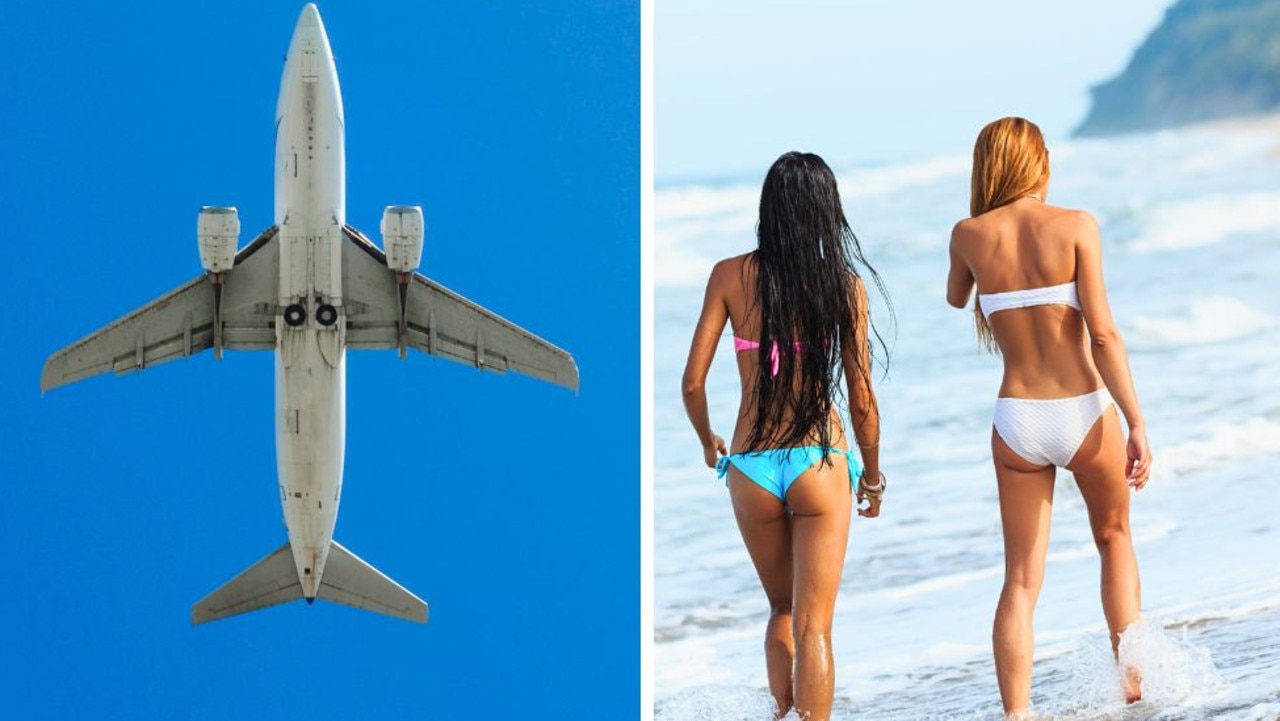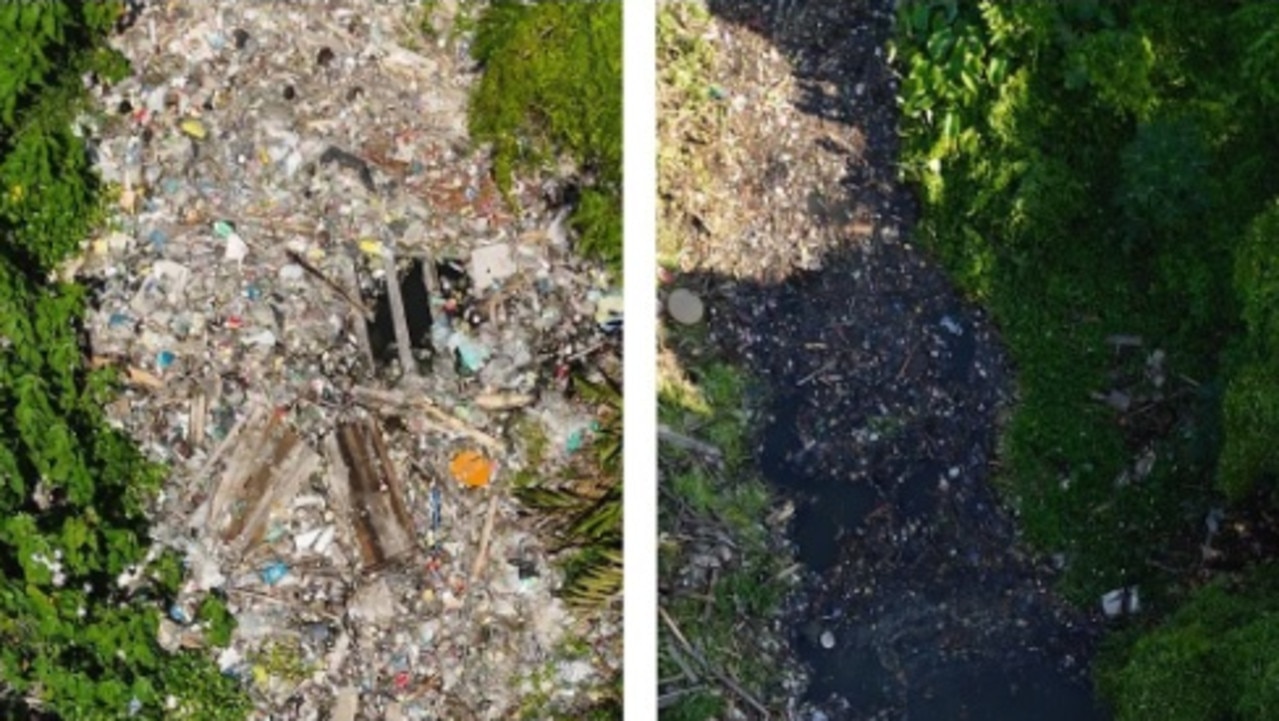Wild way Aussies have $17k worth of stuff stolen in Bali
Tourists have been left shocked when they visit Bali after discovering the very real risk behind playful and charming monkeys.

Australians who have had their belongings stolen by monkeys in Bali have claimed almost $17,000 from one insurance company alone in the last five years – with tourists warned to be careful around the cheeky and sometimes violent creatures.
The most expensive of those Southern Cross Travel Insurance claims was for $8560 when an Aussie traveller had their bag with hearing aids, phone and money stolen by a monkey at Uluwatu on the popular holiday island.
The data, obtained by news.com.au, comes as Australian authorities warn travellers to be careful around animals, with almost 150 people in NSW seeking treatment after returning from overseas with a bite or scratch this year.
Southern Cross Travel Insurance paid out $10,000 in claims involving monkey bites overseas in the last five years, with one of those claims (worth $2,656) in Bali.
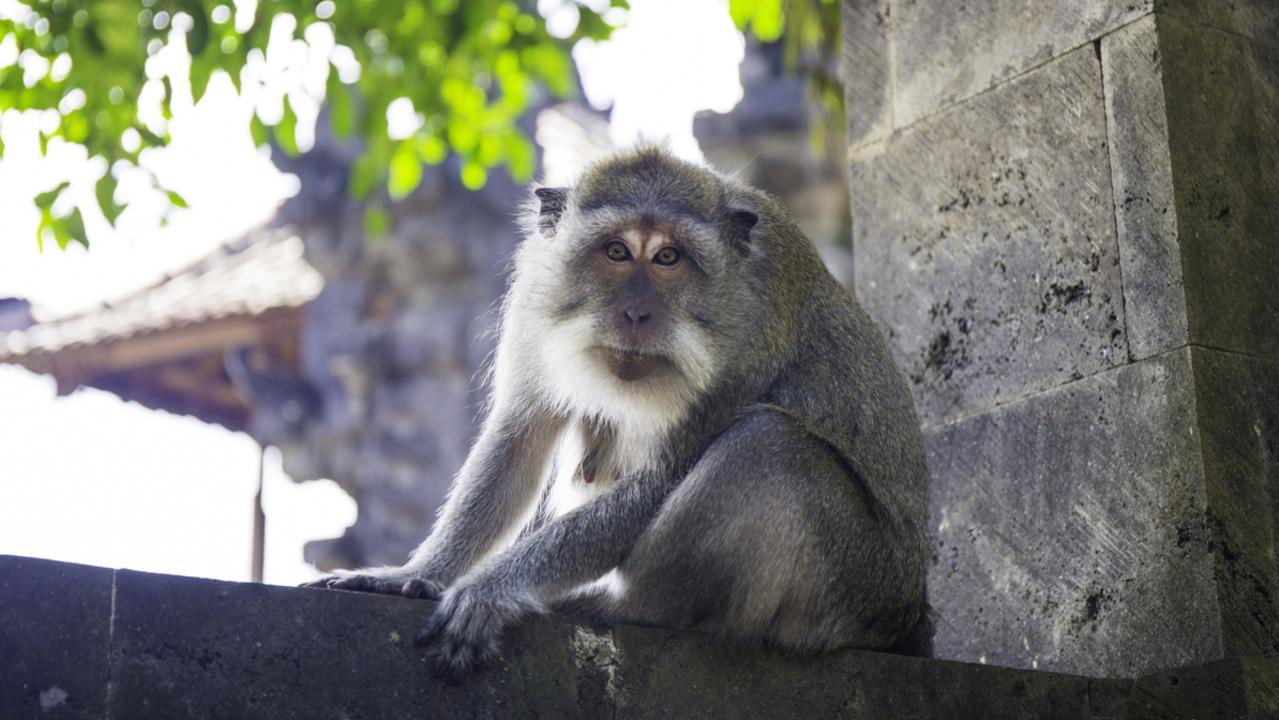
The boss of the Australian travel insurance provider, Jo McCauley, said some of Bali’s most popular tourist attractions were home to monkeys that possessed a mischievous streak.
“While they may appear charming and endearing, it’s crucial to exercise caution and awareness during your visit to avoid running into a mishap,” she said.
Ms McCauley advised travellers to respect the monkey’s space – and avoid eye contact.
“These monkeys inhabit various temples and natural habitats across the island, and while they may seem accustomed to human presence, they are still wild animals,” she warned.
“Maintain a respectful distance and avoid direct eye contact, as this can be interpreted as a threat.
“Securing your belongings is equally important. Monkeys are known for their curiosity, and they won’t hesitate to snatch food, sunglasses, or anything shiny that catches their eye. Keep your bags, hats, and sunglasses securely fastened to prevent any mishaps.”
Ms McCauley also stressed not to feed the monkeys.
“Feeding them human food can disrupt their natural diet and lead to health problems. Additionally, it can encourage them to approach humans aggressively in search of snacks,” she said.
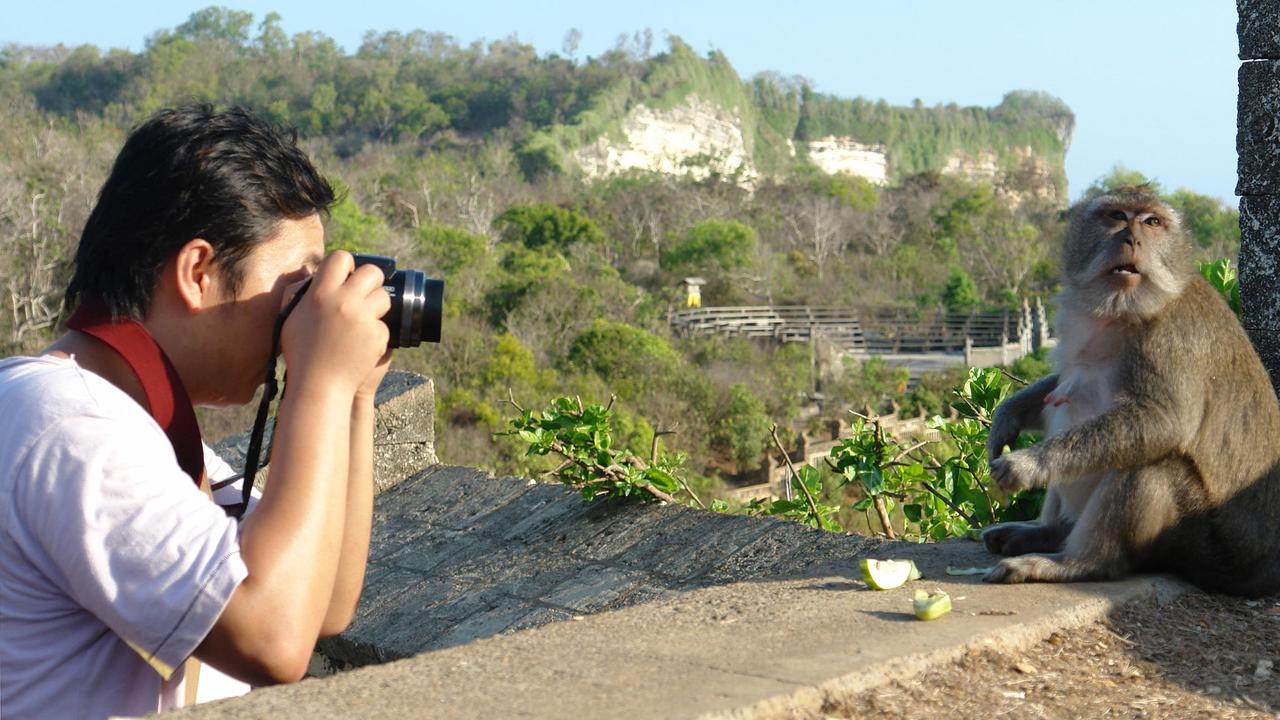
Various TikToks show tourists’ belongings stolen by monkeys as they warm fellow travellers to keep items close, or don’t bring them at all to monkey forests.
“I didn't need mg glasses for the rest of my trip. Yes he threw them over the cliff after he was done,” one person posted after a monkey stole her glasses.
Meanwhile, in an alert on Tuesday, the director of NSW Health’s One Health branch, Keira Glasgow, said wild animals like monkeys can carry severe and life-threatening diseases.
“So far in 2023, around 145 NSW residents have needed treatment to prevent serious disease following an animal bite or scratch overseas,” she said.
“Most of these travellers came into contact with animals in popular tourist areas of Southeast Asia, with the majority of incidents involving monkeys and dogs.
“Wild and feral animals overseas such as dogs, monkeys, cats and bats can carry a host of diseases, like rabies.
“Rabies can be transmitted by a bite or scratch from an infected animal, and while it is a rare disease, it is fatal.”
In addition to $10,000 in claims related to monkey bites, Southern Cross Travel Insurance has paid Australians more than $26,000 in claims related to dog bites.
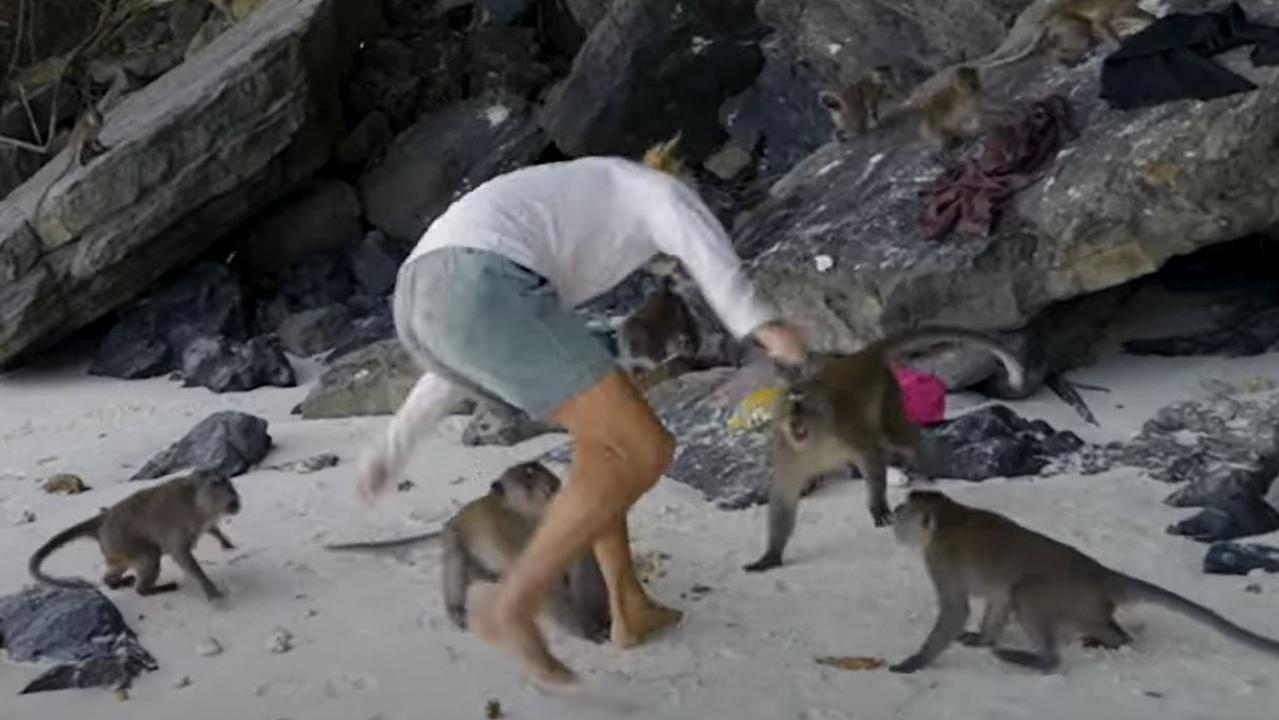
Earlier this year, Australian Youtuber Riley Whitelum was filmed in an intense encounter with a troop of angry monkeys who tried to steal his family’s belongings on Monkey Beach on Ko Phi Phi Don island in Thailand.
He ended up with a bleeding cut on his hand from a monkey’s tooth, which meant he was at risk of contracting rabies.
The family headed into town for medical attention, where the staff at the clinic said they treat one to two people a day from monkey bites.
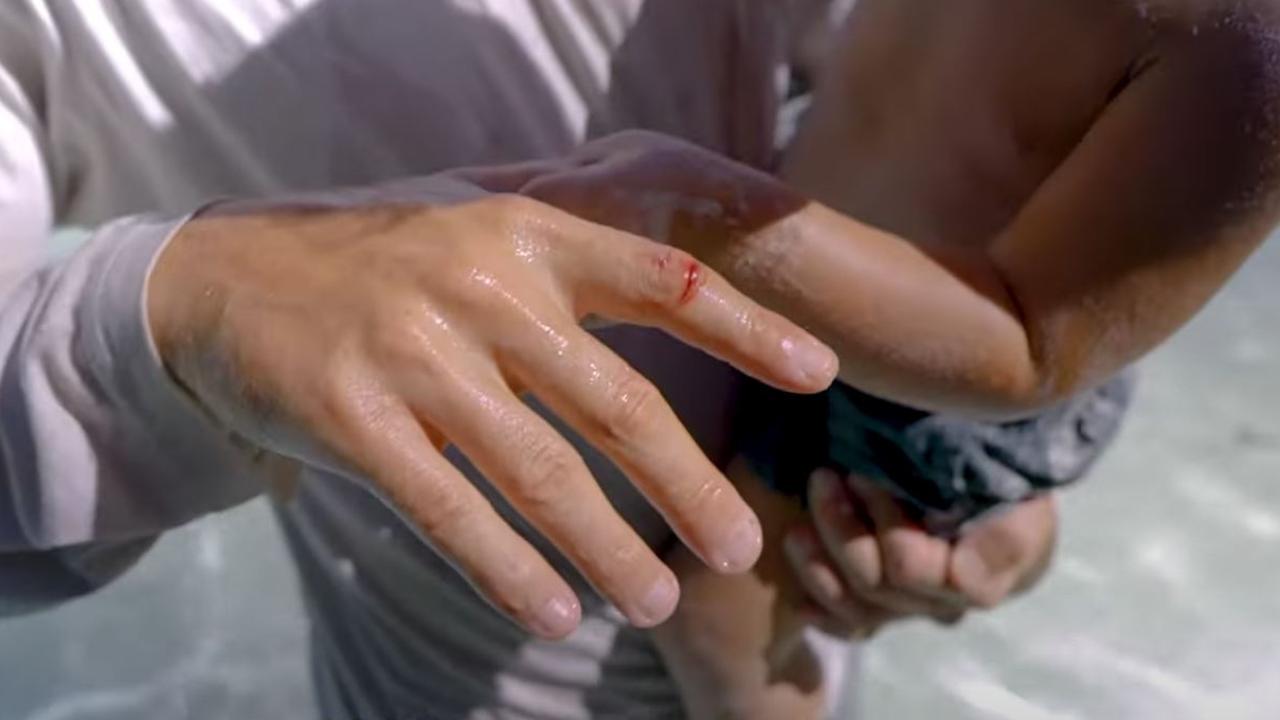
Ms Glasgow said if bitten or scratched by an animal overseas, it was important to use appropriate first aid.
“You should wash the wound well with lots of soap and water for at least fifteen minutes and use an antiseptic solution that has antiviral properties, such as povidone-iodine, to help prevent infection,” she instructed.
“You should also seek rapid medical advice regarding the prevention of rabies, tetanus, and other viral and bacterial infections.
“If you still feel unwell after returning home from travelling, even if you have had medical treatment, please contact your GP immediately, or call Triple Zero (000) if it is an emergency.”




